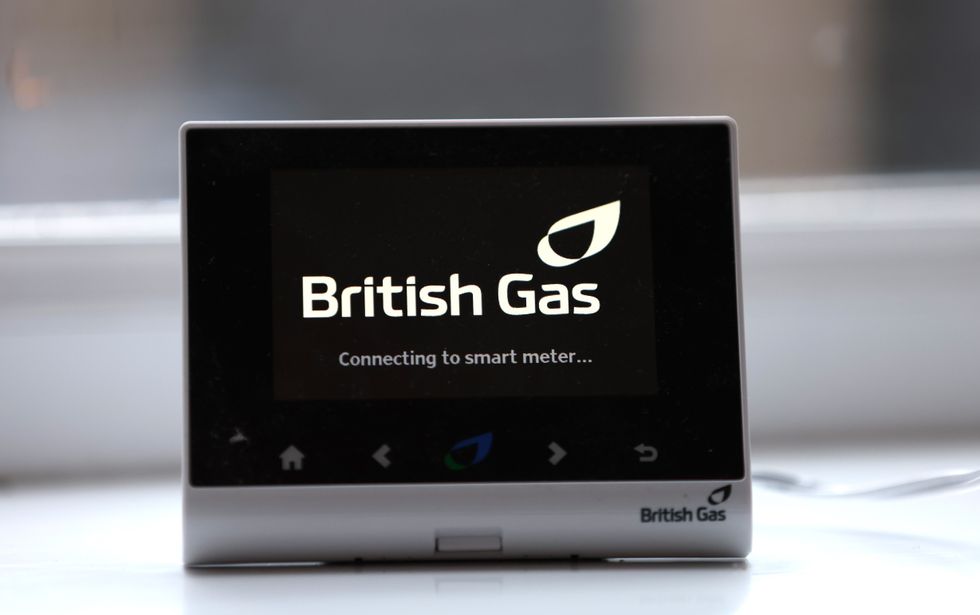British Gas, Octopus and OVO customers warned they could miss out on £200 savings with 'little-known hacks'
Millions of UK households are facing higher energy bills this month as the April 2025 price cap increase takes effect.As the typical annual energy bill rises to £1,849 under Ofgem's latest price cap adjustment, these lesser-known energy-saving methods offer welcome relief for millions of customers.While many families grapple with soaring household costs, energy expert Gordon Wallis has shared a series of lesser-known tips that could help households save more than £200 a year on their bills. The simple hacks require little to no upfront cost but can lead to noticeable reductions in energy usage.Energy bills have risen again after Ofgem increased its price cap for the third time in a row. The average household bill has climbed by 6.4 per cent to £1,849 a year — an extra £9.25 a month for those paying by direct debit.The latest hike applies to customers of all major energy suppliers, including British Gas, EDF Energy, E.ON Next, OVO Energy and ScottishPower.Wallis said: "Many people assume that cutting their energy bills means major renovations or costly new tech, but in reality, small everyday changes can add up to significant savings."He added that households can make a real difference by simply being “smart with the energy we’re already using.”Wallis suggests that intentional energy use is both "financially smart" and "environmentally responsible".One of the most effective low-cost tricks, he says, involves using bubble wrap to insulate windows — a method that can cut heat loss by up to 50 per cent. He said: "This trick is surprisingly effective, especially for older homes with single-glazed windows."Simple kitchen habits can also make a noticeable difference. Cooking with lids on saucepans reduces energy use by nearly half, while switching from an oven to a microwave could make big savings.He said: "Cooking with a microwave instead of an oven, especially for smaller meals, can save over £100 a year."Wallis urges households to check their boiler settings. He said: "Many combi boilers come with a 'preheat' mode, which keeps water hot around the clock. Turning this off could save up to £100 a year."He also recommends switching to a time-of-use tariff, which allows households to run appliances like washing machines and dishwashers overnight at nearly half the cost.Wallis warned that outdated appliances could be silently draining household budgets.He continued: "Older fridges, washing machines, and boilers may seem like they're doing the job, but as they age, they lose efficiency and require more energy to operate."This hidden inefficiency, he added, can add hundreds of pounds to energy bills each year without homeowners realising.While many households avoid replacing old appliances to save money upfront, experts warn this approach often proves more costly in the long run. Outdated devices can waste as much as £300 a year in extra energy compared to modern, energy-efficient alternatives.Wallis also advises turning off Wi-Fi routers overnight, a simple step that can shave £20 to £30 off annual bills. Insulating hot water pipes is another low-effort fix that helps prevent heat loss as water moves through the home.Wallis said: "These small behavioural shifts can make a meaningful difference to household budgets during challenging economic times."The April price hikes affect more than just energy, with households also facing higher council tax, mobile phone bills, broadband charges, water rates, and vehicle tax. With pressure on all fronts, these practical energy-saving tips offer a way to ease the financial strain without major spending.

Millions of UK households are facing higher energy bills this month as the April 2025 price cap increase takes effect.
As the typical annual energy bill rises to £1,849 under Ofgem's latest price cap adjustment, these lesser-known energy-saving methods offer welcome relief for millions of customers.
While many families grapple with soaring household costs, energy expert Gordon Wallis has shared a series of lesser-known tips that could help households save more than £200 a year on their bills.
The simple hacks require little to no upfront cost but can lead to noticeable reductions in energy usage.
Energy bills have risen again after Ofgem increased its price cap for the third time in a row. The average household bill has climbed by 6.4 per cent to £1,849 a year — an extra £9.25 a month for those paying by direct debit.
The latest hike applies to customers of all major energy suppliers, including British Gas, EDF Energy, E.ON Next, OVO Energy and ScottishPower.
Wallis said: "Many people assume that cutting their energy bills means major renovations or costly new tech, but in reality, small everyday changes can add up to significant savings."
He added that households can make a real difference by simply being “smart with the energy we’re already using.”

Wallis suggests that intentional energy use is both "financially smart" and "environmentally responsible".
One of the most effective low-cost tricks, he says, involves using bubble wrap to insulate windows — a method that can cut heat loss by up to 50 per cent.
He said: "This trick is surprisingly effective, especially for older homes with single-glazed windows."
Simple kitchen habits can also make a noticeable difference. Cooking with lids on saucepans reduces energy use by nearly half, while switching from an oven to a microwave could make big savings.
He said: "Cooking with a microwave instead of an oven, especially for smaller meals, can save over £100 a year."

Wallis urges households to check their boiler settings.
He said: "Many combi boilers come with a 'preheat' mode, which keeps water hot around the clock. Turning this off could save up to £100 a year."
He also recommends switching to a time-of-use tariff, which allows households to run appliances like washing machines and dishwashers overnight at nearly half the cost.
Wallis warned that outdated appliances could be silently draining household budgets.
He continued: "Older fridges, washing machines, and boilers may seem like they're doing the job, but as they age, they lose efficiency and require more energy to operate."
This hidden inefficiency, he added, can add hundreds of pounds to energy bills each year without homeowners realising.

While many households avoid replacing old appliances to save money upfront, experts warn this approach often proves more costly in the long run.
Outdated devices can waste as much as £300 a year in extra energy compared to modern, energy-efficient alternatives.
Wallis also advises turning off Wi-Fi routers overnight, a simple step that can shave £20 to £30 off annual bills. Insulating hot water pipes is another low-effort fix that helps prevent heat loss as water moves through the home.
Wallis said: "These small behavioural shifts can make a meaningful difference to household budgets during challenging economic times."
The April price hikes affect more than just energy, with households also facing higher council tax, mobile phone bills, broadband charges, water rates, and vehicle tax.
With pressure on all fronts, these practical energy-saving tips offer a way to ease the financial strain without major spending.







































